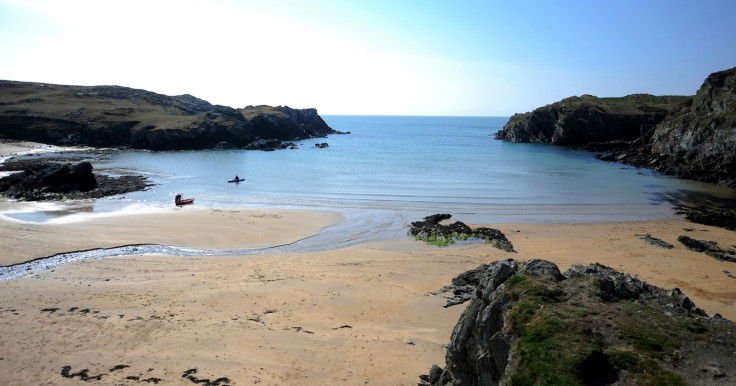Tourists and locals breaking a small law in the UK could face £1,000 fine
The beach law in the UK has been put in place by local councils.

Tourists and locals must be aware of an important beach law across the UK to avoid receiving a hefty fine.
As per the law in the UK, which is not very commonly known, removing sand, pebbles, or stones from public beaches across the country is illegal under the Coastal Protection Act 1949. People who remove the said natural materials from beaches across the UK could be fined up to £1,000, reported The Week.
UK's small but crucial beach law
The law has been put in place by local councils who have the power to issue fines of up to £1,000 to holidaymakers who are caught removing stones and sand, according to The Sun.
Last year, Scotland's Angus Council put up a Facebook post, urging people who visit beaches in the country not to take stones and sand home and to leave with only "pictures and memories."
"One stone won't matter will it? Perhaps not, but another, then another...then multiply that by the many thousands of people who visit our beaches throughout the year and who might just take a keepsake. Even then, isn't it just a drop in the North Sea?
"Well, not really. Every stone plays its part in our natural coastal defences and in protection from the continued and increasing threat of coastal erosion and flooding," read Angus Council's post.
Back in 2018, a British man was forced to drive hundreds of miles to return the stones he stole from a beach in Cornwall. According to the local council, the man, who was on vacation, had taken 10 stones from Crackington Haven, a beach near Bude in Cornwall.
After the man returned home from his holiday, the council contacted him and asked him to return the stones back to the beach.
At the time, a spokesperson for the council said: "It may seem harmless, but given that many thousands of visitors [come] to Cornwall's beaches every year, every stone removed could have an impact on coastal erosion, natural flood defences, and wildlife habitats."
Italy has a similar rule
The UK is not the only country where taking sand as a souvenir could land tourists or locals in trouble. Italy's famous pink sand beach, Spiaggia Rosa, on Budelli Island has been protected by the Italian Government since 1992.
It was earlier reported that in order to help guard the fine shoreline, the Italian government has banned tourists from actually visiting the beach. There are concerns that the pink sands are at "risk of disappearing" and unauthorised visitors can face fines from £430 (€500). In addition, tourists who are caught stealing Sardinia's pink sand can be fined up to £3,007 (€3,500).
Spiaggia Rosa has been closed to holidaymakers since the mid-1990s after its popular sand began to disappear. The local government made their rules stricter after tourists were found to be smuggling kilos of sand away as souvenirs. A couple was slapped with a fine of £860 (€1,000) in 2001 after they were caught filling a plastic bottle with sand.
They are not the only ones to get in trouble for the offence. In 2018, a UK-based Italian man was fined €1,000 (£860) after stealing sand from a beach near the Sardinian city of Olbia.
It is also understood that over the summer, more than 200kg of looted sand has been found in tourists' luggage at the island's airport in Cagliari.
Italy is among the most-visited countries, particularly in the summer. Two of its popular islands: Sicily and Sardinia get very busy in these months as they receive thousands of tourists. It has begun to have an adverse effect on the country's natural environment.
Meanwhile, many beaches across Europe have also introduced new measures to deal with the impact of tourists. There are several other pink beaches travellers can visit across Europe, with one in the UK as well. The seaside town of Devon is home to Paignton Beach, which has been hailed as the second prettiest pink beach in the world.
© Copyright IBTimes 2025. All rights reserved.






















